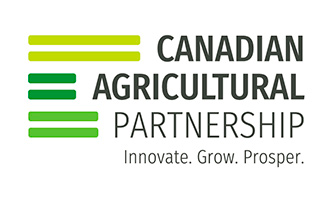The Canola AgriScience Cluster is five-year research program (2023-2028) funded through Agriculture and Agri-Food Canada’s (AAFC) Sustainable Canadian Agricultural Partnership and the canola industry. The program supports the canola industry’s goals of sustainably and profitably increasing production and further contributing to environmental sustainability.
The federal Canola AgriScience Cluster funding for projects under the Sustainable Canadian Agricultural Partnership was combined with contributions from Alberta Canola, SaskCanola, Manitoba Canola Growers, the Ontario Canola Growers Association and industry. Read more in the Canola Council of Canada (CCC) Federal investment in canola research will help drive sustainable growth of the sector article release.
The Canola AgriScience Cluster focused on four priority areas of research to support sustainable growth of the canola industry, including:
- Priority 1: Climate change and environment – reducing greenhouse gas emissions and increasing carbon sequestration from canola.
- Priority 2: Economic growth and development – increase canola’s global competitiveness.
- Priority 3: Sector resilience and societal challenges – improving canola’s resilience in response to climatic stressors and pest pressures.
- Priority 4: Knowledge and technology transfer and impact assessment – turning results into recommendations and evaluating significance
Apply this on your farm
- Watch Dr. Peng explain advancements in blackleg research in this video.
- Listen to Dr. Vail explain the NAM population’s value to canola breeding in this Canola Watch podcast.
- Check out the Federal investment in canola research will help drive sustainable growth of the sector release.
- Reference these canola disease infographics while learning about canola disease research.
- Browse Canadian Agricultural Partnership research.
A list of all projects funded through Sustainable Canadian Agricultural Partnership are on the CCC Canola AgriScience Cluster page. The ten projects focused on achieving canola agronomic solutions are listed in this blog.
Impactful research on canola agronomic solutions
The ten Sustainable Canadian Agricultural Partnership studies featured on the Canola Research Hub which investigate agronomic solutions are:
- Evaluation of gene-edited canola with improved yield and abiotic stress tolerance
- Led by Dr. Emes, this 4-year project focuses on achieving new canola genotypes with improved yield and abiotic tolerance to drought and high temperature using a few selected homozygous lines from a recently-completed Enhancing yield and biomass in canola by modifying carbohydrate metabolism Canadian Agricultural Partnership project.
- Development and deployment of novel resistance genes to improve clubroot management on canola
- Dr. Peng from Agriculture and Agri-Food Canada Saskatoon will lead a research team to characterize previously identified clubroot resistance genes, including their modes of action in stacking, develop molecular markers and use pre-breeding and breeding processes to produce novel clubroot resistance resources.
- Protecting canola against blackleg by introducing novel genes and developing R gene specific markers
- This 4-year project led by Dr. Borhan aims to introduce novel sources of blackleg disease resistance genes and develop gene-specific markers that will be used as tools for precision breeding of resistant cultivars to subsequently provide new sources of blackleg resistance to Canadian farmers.
- Towards a full understanding of canola germination and seedling performance
- Led by Dr. Vail, this 4-year project aims to acquire further data on seed vigor, storage protein and soluble carbohydrate contents through seed vigor screening on the NAM (nested association mapping) population under controlled and field conditions and profiling in order to improve seed and seedling vigor.
- Getting more from less – Enhancing nitrogen use efficiency (NUE) and carbon sequestration in canola
- Dr. Vail from Agriculture and Agri-Food Canada Saskatoon will lead a research team to develop and identify canola germplasm and traits that will reduce the environmental footprint of the crop through reduction of nitrous oxide (N2O) emissions using a range of approaches, while increasing carbon sequestration potential.
- Precision 4R Management: Improving nitrogen use efficiency, greenhouse gas emissions, and productive economics of canola
- This 4-year project led by Dr. Tenuta and his research team will evaluate how precision 4R management, based on within-field management zones, will impact nitrogen fertilizer use efficiency and nitrous oxide (N2O) emissions in canola fields. The research will be conducted on commercial farm fields in the Prairies.
- Improving nitrogen management in winter canola
- Led by Dr. Page, this 4-year project aims to address the knowledge gap on fertility recommendation in winter canola and develop better management practices that reduce greenhouse gas emissions associated with nitrogen fertilizer application, while maintaining the economic profitability of winter canola production in Canada.
- Establishment and applications of Brassica TILLING resources for development of resilient canola
- Dr. Datla from the Global Institute for Food Security will lead a research team in using the TILLING (Targeting Induced Local Lesions In Genomes) technology to create new breeding opportunities and facilitate proposed efficient gene discovery pipeline that target improved performance, water usage efficiency and drought tolerance and photosynthetic efficiency.
- Flea beetle resistance in canola
- This 4-year project led by Dr. Hegedus aims to develop new B. napus lines that produce hairs on their leaves and stems to act as a natural resistance to flea beetles to replace the use of neonicotinoids and other insecticides. This work builds on recently-completed Genetic resources for flea beetle resistance in canola Canadian Agricultural Partnership project.
- Assessing fungicide sensitivity in S. sclerotiorum
- This 5-year sclerotinia stem rot-focused project is being carried out by Dr. Hegedus and his research colleagues at Agriculture and Agri-Food Canada Saskatoon. The study will establish baseline sensitivities of S. sclerotiorum samples (from canola fields) to fungicides and determine whether the pathogen has developed reduced sensitivity to commonly used fungicides used to control the disease.
Brief overviews of these projects are available on the Hub and will be updated as the research progresses. All other Cluster research is also available on the Hub, including projects from the Canadian Agricultural Partnership, projects from Growing Forward 2 and projects from Growing Forward.
Published June 28, 2024











